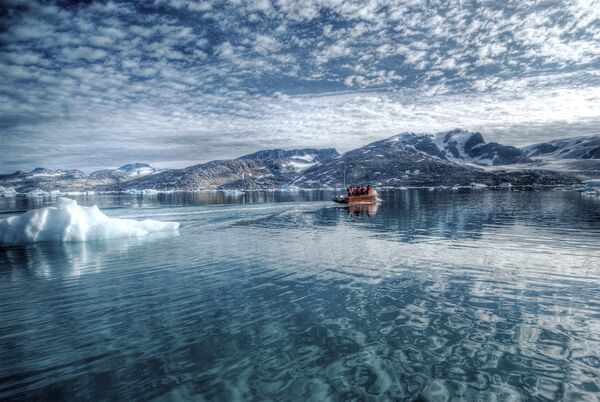U.S. scientists are interested in using Russian unmanned aerial vehicles (UAV) for joint Arctic research projects, a Russian official said on Friday.
Vladimir Sokolov, chief of an Arctic expedition run by a research center affiliated with the Russian Federal Service for Hydrometeorology and Environmental Monitoring, said drones were successfully used to study atmospheric fluctuations that denote if the surface is water or ice.
He said the National Aeronautics and Space Administration (NASA) and the National Oceanic and Atmospheric Administration (NOAA) had proposed joint Arctic studies. He did not say when the proposal was made.
"Possibilities for such cooperation are being discussed at the top level," he said without elaborating.
A Russian space official said on Tuesday Russia and Canada would soon start negotiations on the integration of their national space systems to monitor the Arctic.
Anatoly Shilov, deputy head of the Federal Space Agency, Roscosmos, said Russia would create a multipurpose space system called Arktika (Arctic), worth around 70 billion rubles ($2.5 billion).
The satellite system will monitor climatic changes and survey energy resources in the Arctic region. It will monitor the weather and environment of the North Pole, pinpoint hydrocarbon deposits on the Arctic shelf, provide telecommunications over the hard-to-access areas and ensure safe air traffic and commercial shipping in the region.
Shilov said the first Russian and Canadian satellites could be orbited in three years, while the system "should be up and running in no less than six to seven years."
The vast hydrocarbon deposits that will become more accessible as rising global temperatures lead to a reduction in sea ice have brought the Arctic to the center of geopolitical wrangling between the United States, Russia, Canada, Norway, and Denmark.
Under international law, each of the five Arctic Circle countries has a 322-kilometer (200-mile) exclusive economic zone in the Arctic Ocean.
However, under the United Nations Convention on the Law of the Sea, if a country can show its continental shelf extends beyond the 200-mile limit, it can claim a right to more of the ocean floor.
Russia has undertaken two Arctic expeditions - to the Mendeleyev underwater chain in 2005 and to the Lomonosov Ridge in the summer of 2007 - to substantiate its territorial claims in the region. Russia first claimed the territory in 2001, but the UN demanded more conclusive evidence.
Russia has said it will invest some 1.5 billion rubles ($50 million) in defining the extent of its continental shelf in the Arctic in 2010.
ST. PETERSBURG, July 2 (RIA Novosti)




